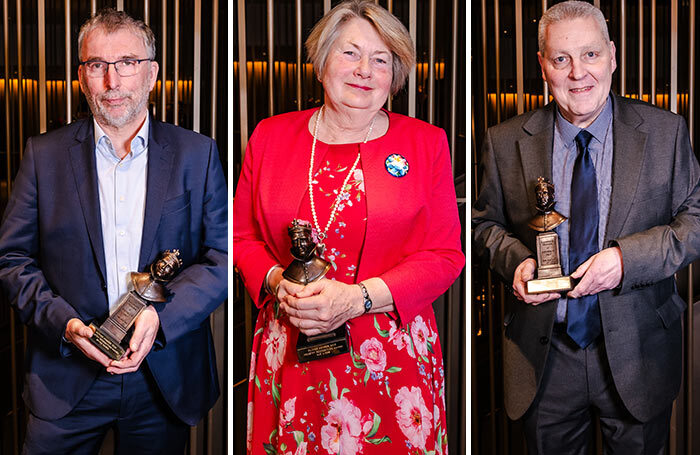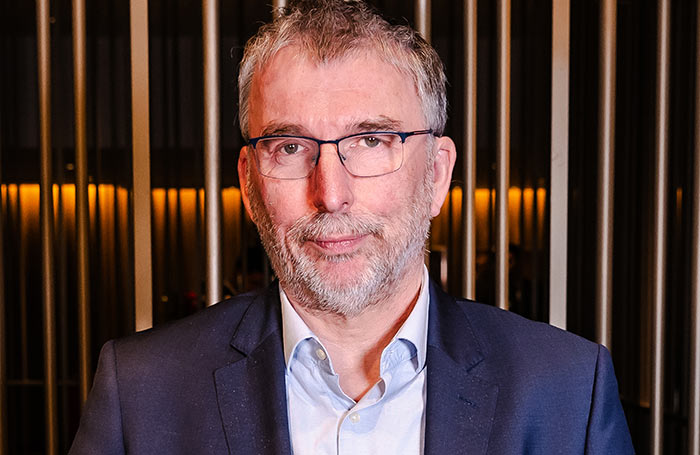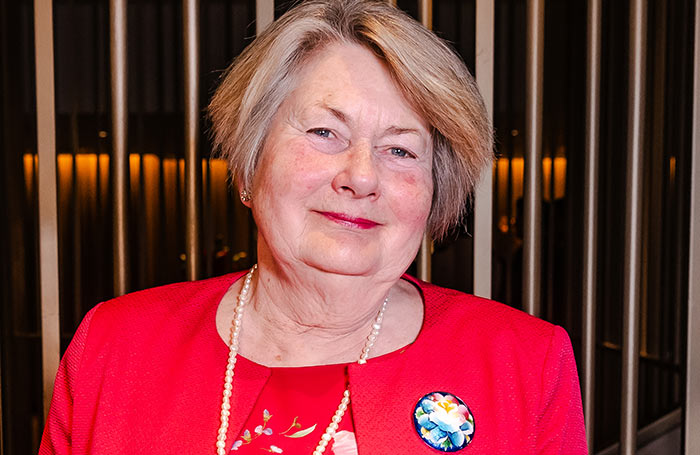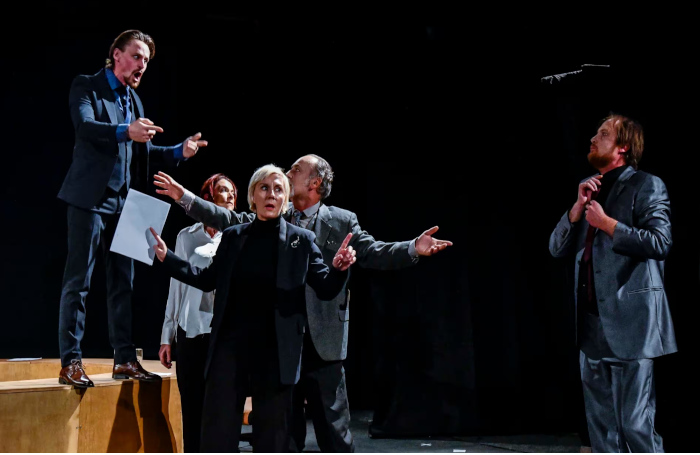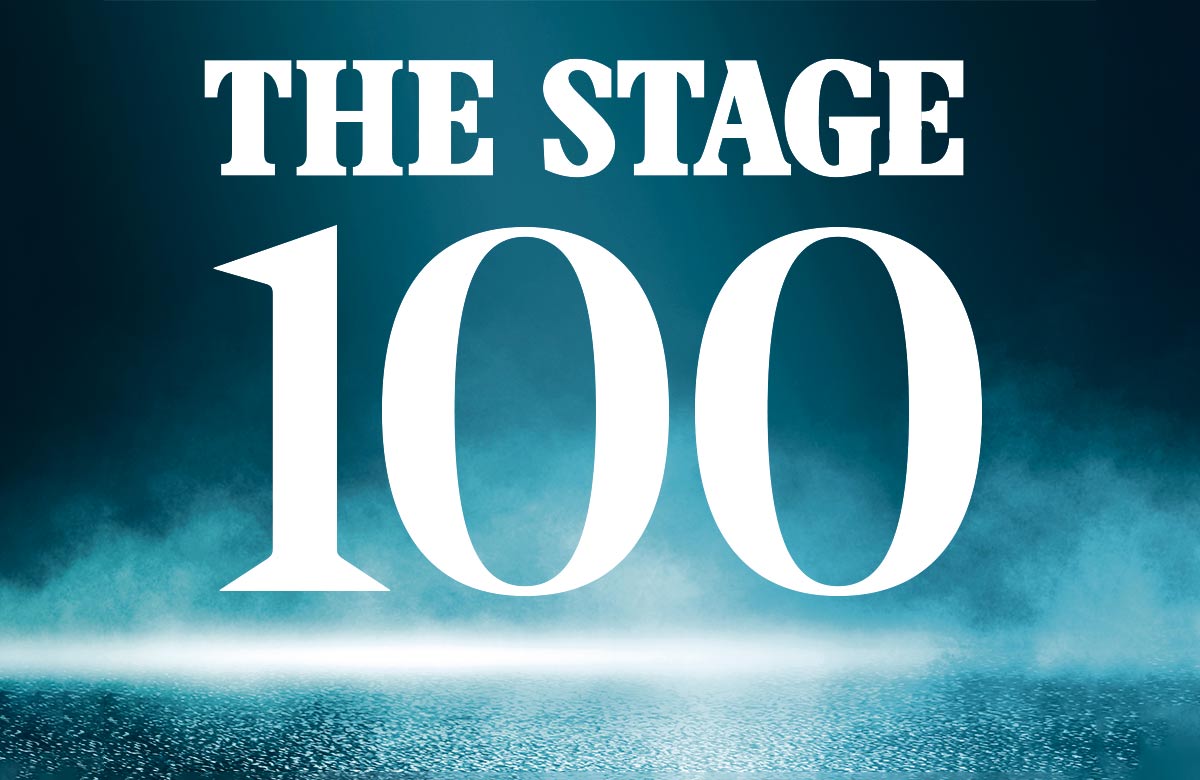Olivier Awards: meet the winners of this year’s industry recognition award
For the past six years, the Olivier industry recognition award has shone a spotlight on pioneering individuals whose contribution to theatre has often gone under the radar but has helped shape the sector today. This year’s winners tell Georgia Snow how it feels to be honoured by the Society of London Theatre and reflect on their careers
Bryan Raven
As the managing director of leading lighting supplier White Light for about 25 years, Bryan Raven – who has worked in theatre for four decades – has become one of the backstage sector’s most recognisable names. Even so, to learn he was one of this year’s recipients of the Olivier industry recognition award came as something of a surprise.
“When I first received the phone call I immediately checked it wasn’t April 1,” he jokes. “Then, there was a period of shock as I could never imagine someone like me, who I would consider to be ‘behind the people who are behind the scenes’, would ever get an award. And to get the recognition from the people I have spent nearly 40 years ultimately working for, such as theatre producers, began to sink in and I felt very humble.”
Raven, who stepped back from his role as managing director of White Light in 2024, worked for the company for more than 35 years, during which time it expanded beyond West End theatre into live music, leisure and education, working all across the globe. He is recognised for his transformative impact on the sector, which includes training a new generation of technicians through White Light’s apprenticeship programme and his extensive work championing sustainability.
‘From the very beginning, we were always encouraged to ‘do the right thing’, even if it wasn’t the most profitable choice’
“I was very lucky that I met John Simpson, the founder of White Light, all those years ago and looking back, I realise he unconsciously created a culture of what we would now call ‘responsible business’. From the very beginning, we were always encouraged to ‘do the right thing’, even if it wasn’t the most profitable choice... I was unconsciously getting involved in so many activities that were important but not necessarily the most commercial because it was the right thing to do. So to be recognised for this individually is as much recognition for the whole company and the culture at White Light as it is for me,” Raven says. He has witnessed much change in the industry over the past 40 years, too, from the growing role of private equity to the effects of events such as Brexit and Covid – “maybe there were always external factors that affected the industry, but their relevance and influence seem increasingly important factors in the health of today’s industry”, he says.
The presence of external investors has, says Raven, altered the landscape. “The original founders and owners of the wider theatre industry have moved on or retired, and the growing size, scale and value of many businesses mean that simply handing over to the next generation isn’t really possible. So, external stakeholders come in, some – but not all – of whom have short-term aspirations that put pressure on management to maximise profitability, often at the expense of the bigger picture,” he says.
Despite the challenges, he still finds theatre and the passion of the people who work in it “incredibly exciting” – “not just theatrical shows but work with communities, audiences, as well as the next generation of theatre practitioners, both technical and creative”.
Since stepping back from running White Light, Raven has worked on sustainability efforts with the Theatre Green Book and with PLASA, which represents the entertainment technology industry and continues to help small business leaders – both in theatre and beyond – with their own sustainability work.
Continues...
Sue Uings
A former head of marketing at Cameron Mackintosh Ltd, Sue Uings has been recognised for her decades-long work in that field and in ticketing. Beloved by her peers, Uings says she was “completely flattered” by the recognition and was “reeling from the realisation” that she had won an Olivier award.
During her career, Uings has worked on some of the West End’s most iconic productions, including overseeing marketing and ticketing for Les Misérables, The Phantom of the Opera and Miss Saigon, and gained a reputation for being the go-to woman for throwing glamorous and memorable opening-night parties.
During her career, Uings has also worked as a box-office manager, including on the original production of Cats, for which she also pioneered educational and community activity on that first staging of the Andrew Lloyd Webber musical. For this, SOLT has credited her with setting a standard for the industry.
Today, she has shifted focus somewhat and works with producers to provide accommodation for cast, creatives and crew, both in London and the regions. Reflecting on her career and the change she has witnessed during her years in the industry, Uings is nostalgic for some of the characteristics of years gone by. “I have moved on from the area I have been recognised in but I think the personal service angle and day-to-day contact and interaction with clients is sadly missing now,” she says.
She hasn’t hung up her event shoes just yet, though, as she still organises press night parties for Mackintosh and for Short Street Productions, the outfit led by producers Mark Rubinstein, Sarah Edwards and Dave McNeilly.
Continues...
Rupert Bielby
For nearly 40 years, Rupert Bielby has been a linchpin of West End theatre management, most recently as general operations manager for Andrew Lloyd Webber’s LW Theatres, the group overseeing six London houses.
These include the London Palladium and the Theatre Royal Drury Lane, where Bielby was general manager for 21 years. “It is so gratifying that this part of the industry has been acknowledged through this award,” he says of the recognition for his contribution to the ‘unseen’ work that keeps West End theatres running.
“I feel rewarded and recognised for all the hours, most of which – with a few exceptions – have been nothing other than enjoyable, fun and fulfilling... ensuring the operational aspects of the business work effectively, safely and we deliver the best possible service to all our customers, resident productions, promoters, event organisers and stakeholders,” he says.
Reflecting on his career more broadly, the biggest changes he has witnessed have come as West End theatres have increasingly opened themselves up beyond their traditional performance schedule.
“In purely practical terms, the buildings are now used much more fully, which is a very good thing. In the early days of my career, the resident production played eight shows per week, Monday to Saturday, with very little other business taking place. Nowadays, very many shows have regular Sunday performances and on resident production rest days, there is usually a concert or event taking place. Daytimes are also busy, with many events and functions taking place, ensuring that the fantastic spaces in our magnificent theatres are used by and seen by many more people,” he says.
‘I feel rewarded and recognised for all the hours, most of which have been nothing other than enjoyable, fun and fulfilling’
He speaks positively about the growing focus and investment on training and development in theatre management, “ensuring people feel valued and know the roles they fulfil are seen as professional careers and essential to the success of our business”.
Bielby has been honoured in particular for his role in leading LW Theatres’ buildings through the challenges of the pandemic and of reopening, and is buoyed by “the fact that [the company] continues to go from strength to strength and the West End continues to thrive”, adding: “The variety of productions sitting alongside each other is incredible, with superb new work and brilliant revivals side by side.”
Due to health reasons, Bielby recently retired, but plans to keep a hand in development, coaching and mentoring theatre management staff. “I am engaging with voluntary and paid positions with organisations where I can continue to help young people achieve their goals and realise their full potential in operational and people management roles.”
Opinion
Recommended for you
Opinion
Recommended for you
Most Read
Across The Stage this weekYour subscription helps ensure our journalism can continue
Invest in The Stage today with a subscription starting at just £7.99
